Just as humans can develop dementia with age, dogs can also face this problem as they grow older. This condition is called Canine Cognitive Dysfunction (CCD) or dog dementia. It can bring changes in your dog’s behavior, learning ability, and memory. Most pet parents mistake it as just “old age” and ignore it.
A dog with dementia may forget doors inside the house, lose its way, suddenly get anxious, bark all night, show irritability, or even urinate and poop indoors. Parents often think the dog is doing this on purpose, but in reality, the dog cannot control it and doesn’t even understand what’s happening. Sadly, some parents scold, threaten, or even hit their dog, which only makes the situation worse.
The truth is, Dementia in Senior Dogs is a manageable condition. With the right care, proper diet, and routine, you can make your pet’s life more comfortable.
What is Dementia in Dogs?
It is a brain-related disease where neurons slowly become weaker and blood flow to the brain decreases. Senior dogs are highly sensitive to this condition. Around 65% of dogs aged 15–16 years suffer from dementia and About 25% of dogs aged 11–12 years show early signs.
This disease affects how information is processed in the brain, leading to confusion, anxiety, and behavioral changes. The buildup of beta-amyloid plaques reduces brain function, which affects memory and daily activities.
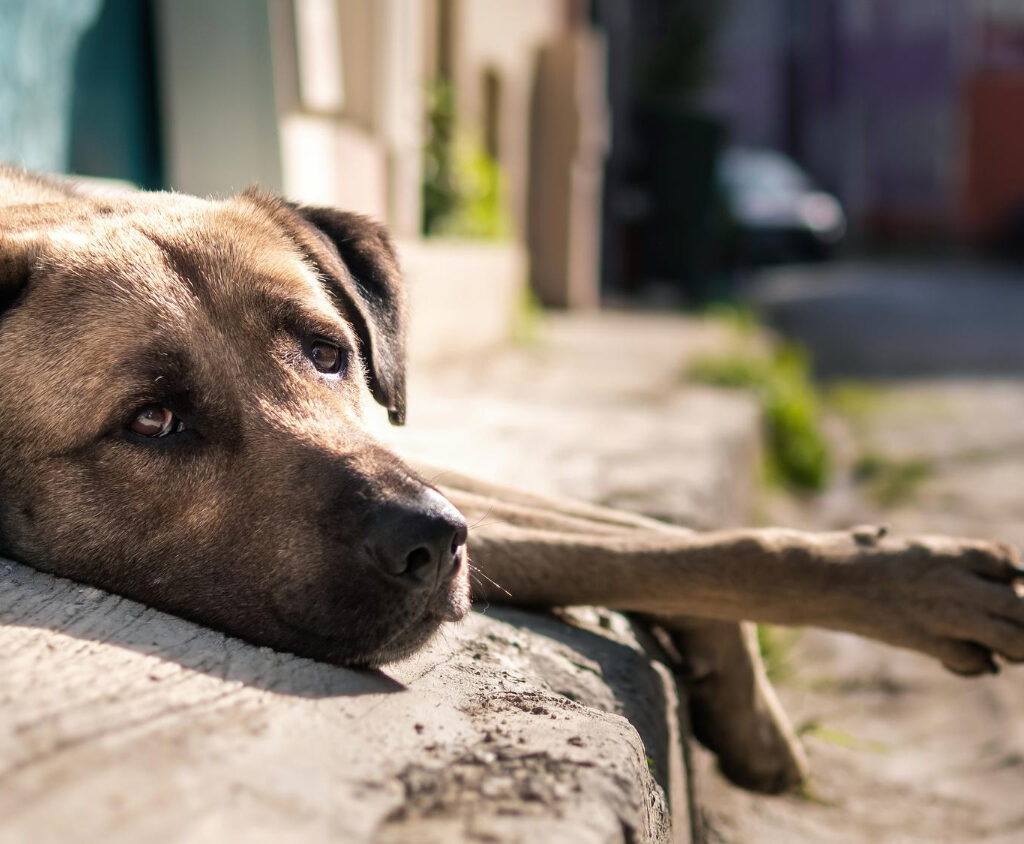
Symptoms of Dementia in Senior Dogs
Confusion / Disorientation
- Dog looks lost in the house
- May stare at walls or get stuck in corners
- Forget doors or familiar furniture
Loss of Recognition
- Fails to recognize familiar people
- Shows no excitement when greeted
- Some dogs may become irritable or aggressive, while others stay overly clingy and anxious
Restlessness
- Continuous pacing or no movement at all
- Excessive panting
- Loss of interest in toys
- Fear of noises and lack of interest in walks
Changes in Daily Routine
- Sleeping all day but staying awake at night
- Barking or whining without reason, especially at night
- Wandering around the house during nighttime
House Soiling
- Urinating or pooping inside the house
- Forgetting toilet training even after being taken outside
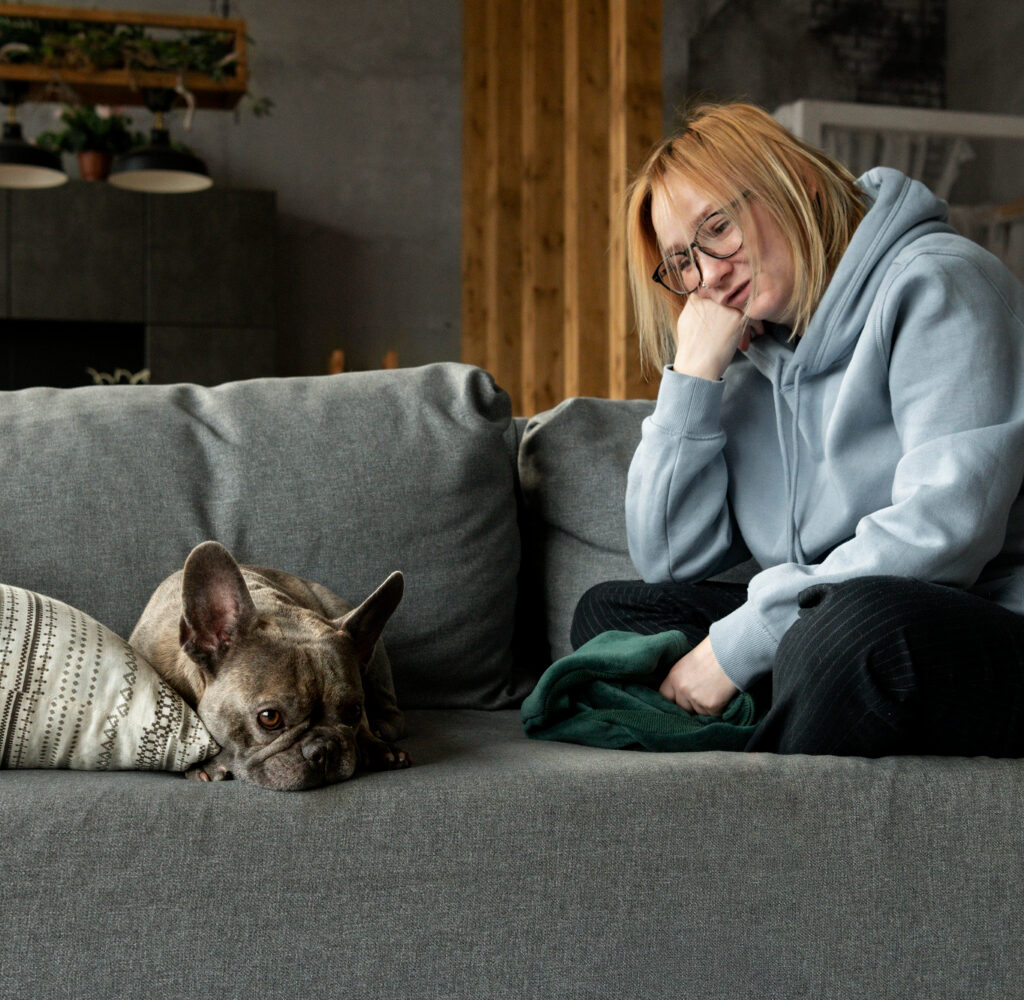
Management Strategies
1. What Pet Parents Should Do
- Stay calm, the condition progresses slowly
- Remember, your dog is not doing it on purpose – never punish or scold
- Respond with patience and kindness
- Spend quality time with your dog and celebrate small achievements
2. Fixed Routine
- Keep feeding and walking times consistent
- Avoid introducing new places
- Maintain a proper sleep schedule
- Focus on improving quality of life instead of only blaming old age
3. Keep the Home Safe
- Do not change furniture often
- Keep floors clutter-free and add safety to stairs or corners
- Fix one resting spot and keep toys in one place
4. Diet
- Provide foods rich in Omega-3 fatty acids and antioxidants (fish oil, blueberries, spinach, carrots – in moderation)
- Choose low-fat, high-fiber diets
- Always consult your vet before giving supplements
5. Mental and Physical Health
- Play sniffing games (like hiding their favorite toy)
- Use puzzle games and feeding toys to keep their mind active
- Teach simple commands like sit or stand
- Take them on short walks, especially if they are restless at night
6. Home Remedies
- Play soothing music
- Give gentle massages
- A small amount of lavender oil can help reduce anxiety
- Some parents also try stem cell therapy (with vet guidance)
7. Supplements and Medicines
- SAMe, DHA, EPA help improve brain function
- Vitamin E and Selegiline may support brain health (only under vet supervision)
- Always give supplements or medicines after consulting your veterinarian
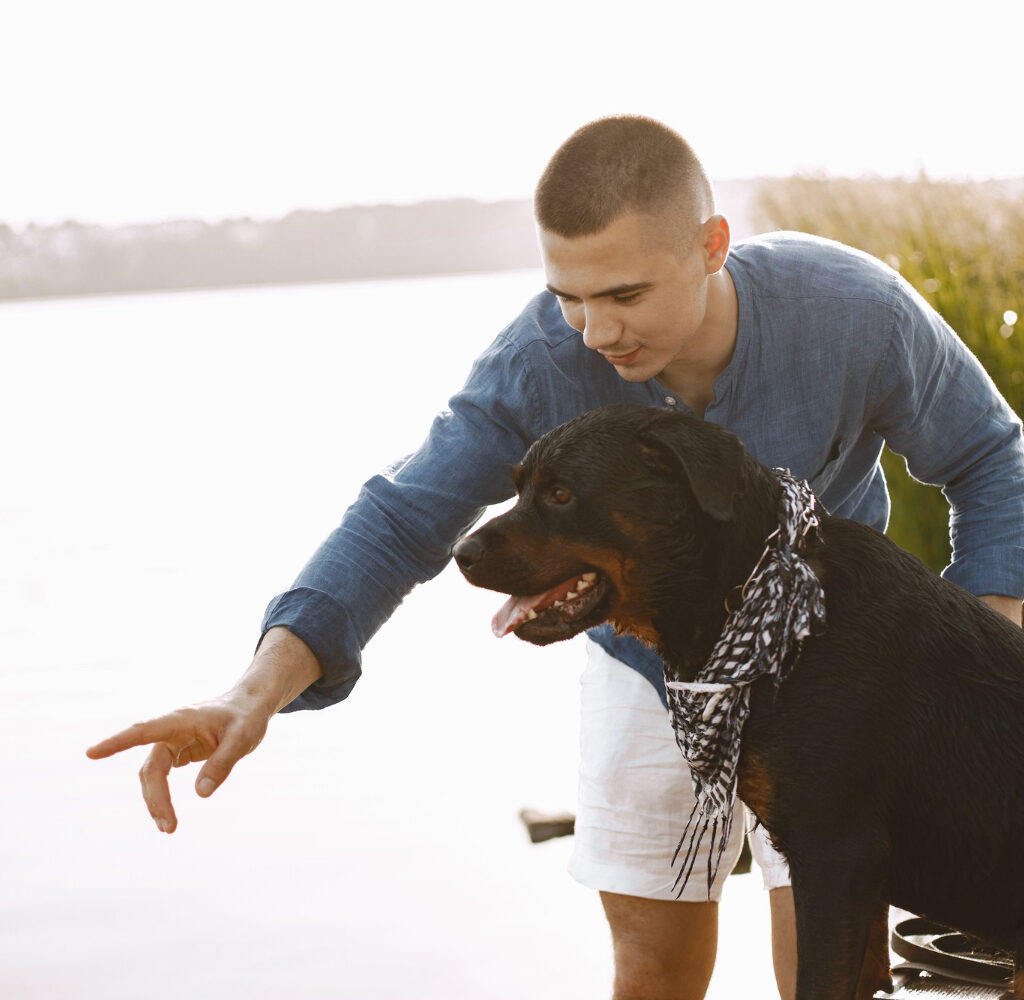
When to Visit the Vet
- Sudden changes in behavior
- Loss of appetite
- Forgetting toilet habits
- Staying awake all night or getting lost inside the house
Conclusion
Dementia in Senior Dogs is not just a sign of old age, but a medical condition that affects memory, behavior, and quality of life. Responsible pet parents should not ignore it. With patience, consistency, and veterinary care, you can manage this condition.
Recognize early signs like confusion and sleep pattern changes. Stay in touch with your vet, celebrate the good days, and stay calm on difficult days. With love, support, and proper management, you can give your senior dog a happy and comfortable life
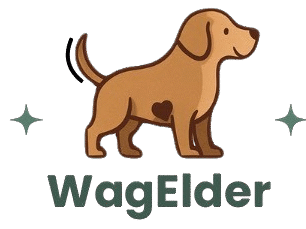
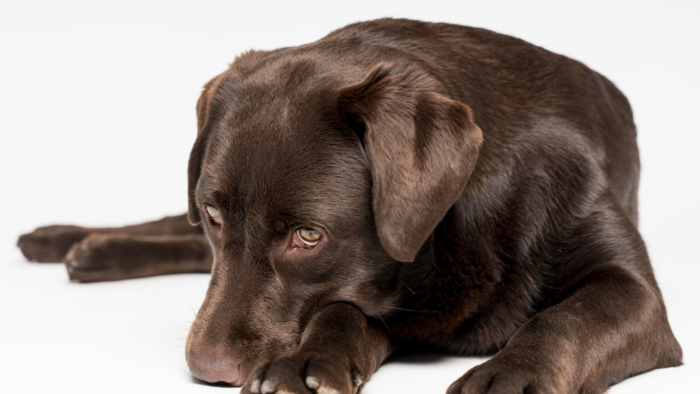
Add a Comment